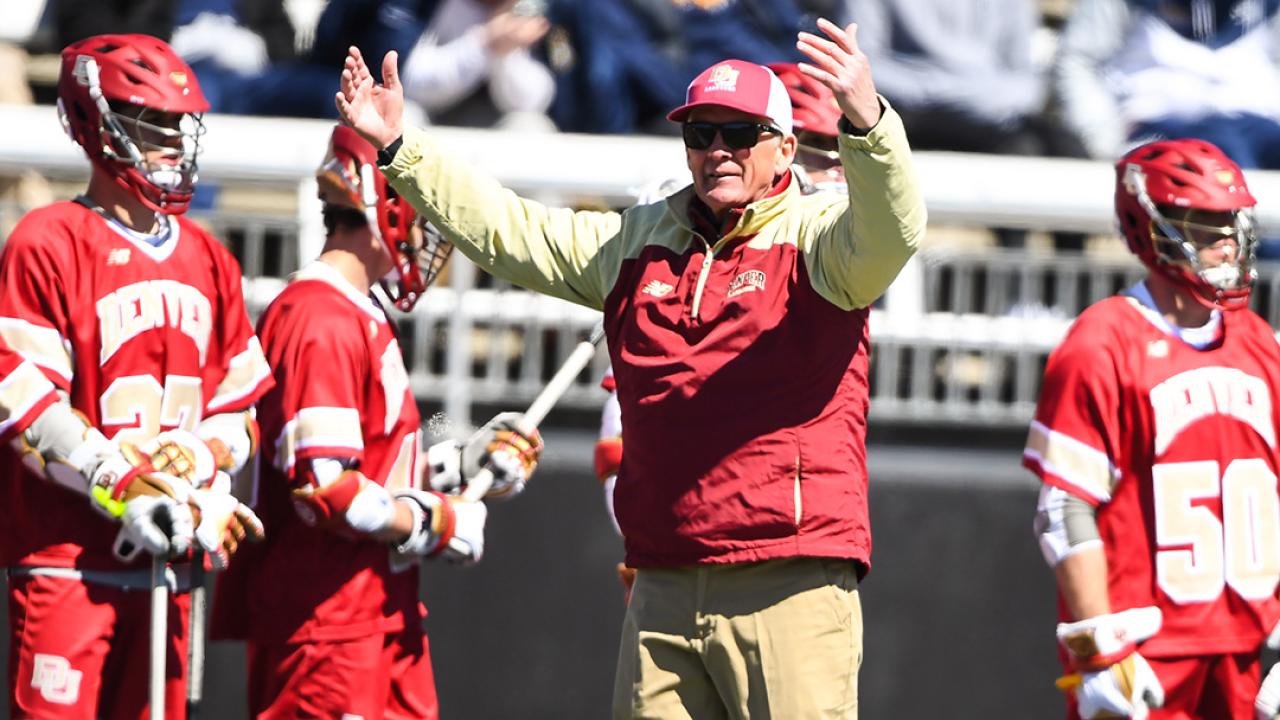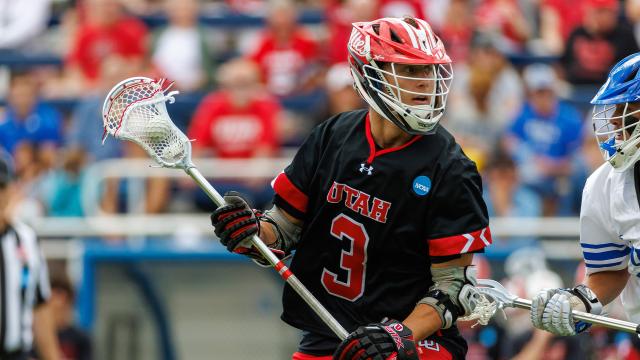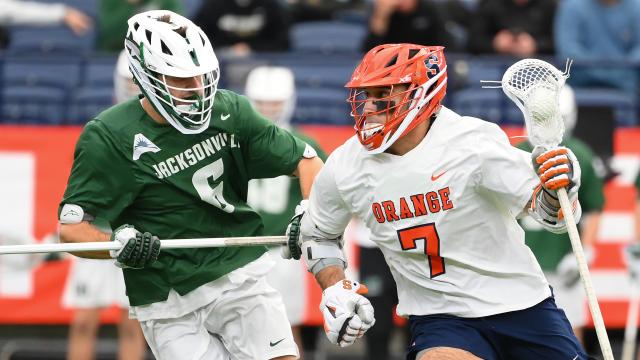
Bill Tierney, a Pioneer in Every Sense, Retiring on his Own Terms
Bill Tierney will receive five months of encomiums as he navigates his final season as Denver’s lacrosse coach, richly earned tributes for a man with remarkable staying power in a sport that has transformed in so many ways during his career.
As Tierney noted Friday in the wake of his retirement announcement, he’s doing it on his terms. Which is apt, considering how much his terms have shaped college lacrosse in the last 35 years.
He built a legacy at Princeton, winning six national titles at a program that was an Ivy League afterthought and even less relevant nationally prior to his arrival.
The sport’s tilt toward defense in the 1990s? Tierney was at the vanguard of that trend, melding his own ideas and former Johns Hopkins assistant Fred Smith’s principles into the framework of a scheme that gave a generation of offenses fits.
Then he looked west, took over at Denver after the 2009 season and tacked on another title in his sixth year with the Pioneers — all the while fostering lacrosse’s growth in the Rockies and leaning prominently on Canadian talent that grew more prevalent in Division I in the last decade.
“I’ve always been a dreamer,” Tierney said. “I’ve always set probably outlandish goals for myself and my team and my family. When I came here, it was [for] a very selfish reason. I could have stayed at Princeton. I just felt I had one more challenge left in me.”
The final part of that challenge awaits this spring. The second-to-last part of that challenge was figuring out just when and how to walk away.
Tierney agreed to a contract extension through 2024 in December 2019, providing some wiggle room for when he would eventually step aside. Then the pandemic hit, a once-a-century jolt that wasn’t in anyone’s coaching handbook — even one as extensive as Tierney’s.
“In the past two years, I’ve felt more stress — put upon by myself — to achieve, to do better, because I felt we had made a promise to this place,” Tierney said. “We had made promises to young men. I just wanted to make sure I fulfilled those promises.”
After contending with super-sized rosters the last few seasons and a spring without an NCAA tournament berth, Tierney began discussions with associate head coach Matt Brown about departing.
Yet the time wasn’t right, especially since he didn’t feel like the Pioneers’ culture was where he wanted it. The decision would have seemed too abrupt, too sudden after a 9-6 season ended with a Big East semifinal loss.
A strong, invigorating fall convinced him the culture problem was solved.
“I wanted to get us back,” Tierney said. “I’ve always said leaving all these jobs, starting with leaving junior high teaching jobs and coaching jobs and everything else, two things: I wanted to make it better than I found it and secondly, leave the cupboard full. I didn’t think at the end of last year our cupboard was full.”
Yet again, it was classic Tierney at work: Getting things set just right. One detail remains at least modestly fuzzy at this point: With months of lead time, who is Denver’s next coach? Tierney has made no secret of his desire for Brown, his longtime assistant with the Pioneers, to succeed him.
His partnership with Brown echoes the one he enjoyed with Dave Metzbower at Princeton. Both assistants effectively ran their respective offenses and played substantial roles in the success Tierney’s teams enjoyed, a fact never lost on the head coach.
But he was the one who orchestrated not just defensive schemes but the human and emotional side of things. He pushed the buttons of players and opponents alike, bickered passionately when it was required and could charm as effectively as anyone.
And then there is his game-day persona, replete with a beet-red visage he could joke about outside of what he called “those two hours” each week that has menaced referees for decades. It sometimes takes a while for Tierney to simmer down after a loss, a problem he has faced only so often with a 429-147 career record.
Never is a long time, so it would be foolish to suggest no one will ever match his accomplishments. But it will be difficult.
Exceedingly difficult.
He won six NCAA titles in a 10-year span at Princeton. In the 21 tournaments before that run began in 1992, no coach won more than four. In the 20 tournaments since, no one has claimed more than four.
Only five active coaches own even half as many victories as he does (Duke’s John Danowski, his longtime friend and one of his few contemporaries still coaching, is the all-time leader with 443). Only one active coach with at least five years of Division I work surpasses his .745 winning percentage (Maryland’s John Tillman, who at 180-59 has a .753 winning percentage).
And no one in the sport’s history has put together nearly as compelling a second act after winning even one championship than Tierney. Denver’s 2015 title — part of a run of five Memorial Day weekend appearances in seven years — was the peak of what might have been viewed as the “lion in winter” phase of his career.
More like late autumn, really.
The conclusion arrives this spring. Tierney said he announced this would be it before practice commenced to ensure his players heard the news from him rather than letting it slip out from another source.
“Not much is going to change,” Tierney said wryly. “Because in reality, Matt will be running the program and I’ll be yelling at the refs.”
In other words, things will be done on his terms to the very end.
Patrick Stevens
Patrick Stevens has covered college sports for 25 years. His work also appears in The Washington Post, Blue Ribbon College Basketball Yearbook and other outlets. He's provided coverage of Division I men's lacrosse to USA Lacrosse Magazine since 2010.

Related Articles




